Reforming blood-thirsty guerrillas with love, saving African orphans in the war with their lives – Testimony of Adas and Rosemeire
Author: Dr. Jun Xu
Translator: BRI Youth: Gabriel Rao
June 10, 2019
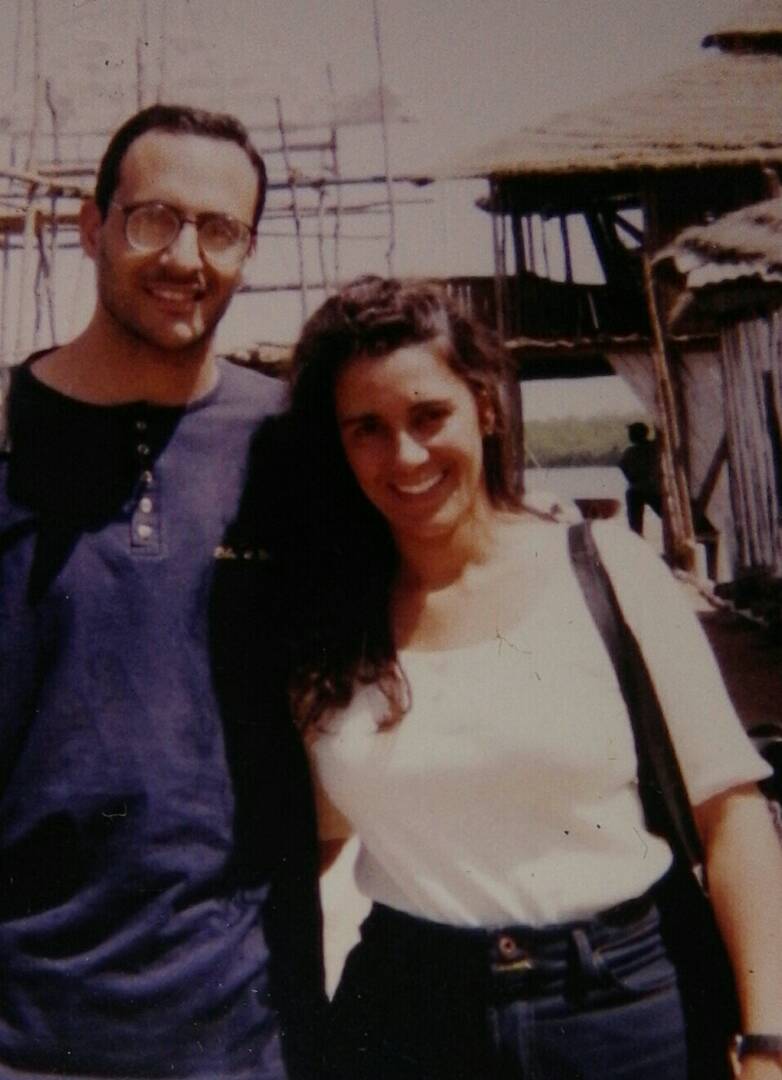
Photo 1, Adas and Rosemeire had their honeymoon in Gambia, 1995
I met Mr. Henrique Adas and his wife Mrs. Rosemeire Adas when I first went to West Africa in 2013. As of this year, they have been in Africa for 28 Years, I always feel that their weather-beaten red faces and black hair that covered their brains must be like the deep mountain warehouse of the Ali Baba thieves, hiding many unknown gold stories. I interviewed them many times, and their faces were always shining with love and humility. Every time, like a sea clam spit out pearls, they embarrassedly said: we did not do anything. It is all the grace of heaven.
It wasn’t until I went to Africa to interview them again this year that I strung these sparkling pearls, scattered in the blue sea, into a dazzling necklace and presented them to my dear readers. I learned that it was Pastor Adas who broke into the Peru’s Path of Light guerrilla leader’s home, influenced murderous guerrillas with love, and led them out of the devils’ life; it was Rev. Adas and his wife Rosemeire who, in a civil war in Guinea-Bissau, persisted until the last minute to safely transfer children from the orphanage to Europe. Later, they successfully established a new orphanage, with the function of hospital, school and disability children caring. Their 28-year story can make ghosts weep, can stun heaven and earth, shock the mountains and rivers. When I learned and understood more and more of the stories of Adas and Rosemeire, my aspiration to them is like the water accumulated on the top of the mountain; it would fall from the sky and submerge the whole world if I did not tell their story to the world.
I. The flower of love that seeks its own suffering
Pastor Adas was born into a Catholic family in Sao Paulo, Brazil, in the 1960s. His father was a middle-class Lebanese farmer, running a small estate, always having the dream that his money could be piled into a tall tower. His mother was an elementary school teacher. Her main hope was to raise the five children through a peaceful life, and have a warm night talk with them around the stove every day. Adas was smart and intelligent. He was highly valued by his father from an early age. The family saved every bite of bread to send him to a law school for two years and then a three-year internship in a major hotel in Sao Paulo. Every time when his father saw young Adas wearing his snow-white suit, dwelling in the great halls with the wealthy people, he was so excited, thinking his dream would be realized in Adas, who would step into the upper class and glorify the whole family with a little good luck.
Lebanese’s good genes in business made young Adas do well in the commercial world. Slowly he had the knowledge and connections to make a fortune, but the increasing number in his bank account could not solve his hunger in the desert of life. Do people live to make money? What is the meaning of life? Where do I come from? Where am I going? The journey of life was getting longer and longer, and his thought about the value of life was getting deeper and deeper. Finally, at the age of 25, he was baptized and became a newborn in Christ, with a heart yearning for new life. Since then, God had called him to be a missionary, and his heart was as restless as a Brazilian rainforest after knowing his life path and mission. He decided to give up the comfortable life, a lifestyle that was designed and paid for by the whole family’s hard work. One day he told his family he didn’t want to finish law school or be a hotel manager. It brought the whole family into a severe storm, and his father sent out a thunderous fury while his mother lamented with tears and kept shaking her head. He gently pushed aside the allure of wealth and fortune, looking forward to the distant suffering place. He wanted to help the poor, and change the fatal fate of others.
He sought to help others without fear of suffering. Every day, he hungered for a land where he could show his love, and he asked the heavenly father: where am I going? His heart, like a dandelion seed, wandered in the sky until he met Miss Rosemeire, who was at the same age as him, in church.
Rosemeire’s father was a poor construction worker and her mother worked as a waitress in a restaurant. From a poor family, Rosemeire studied very hard. She was so talented that after entering university, she studied biology, the most popular subject at that time. After graduation, she found an ideal job in the Brazilian Ministry of Agriculture. She dressed up every day just like the beautiful golden yellow Brazilian national flower – Yellow wind chimes. She caused the envy of many people. Many rich boys were trying to get close to her, a beautiful graceful fairy, and to pick this beautiful national flower.
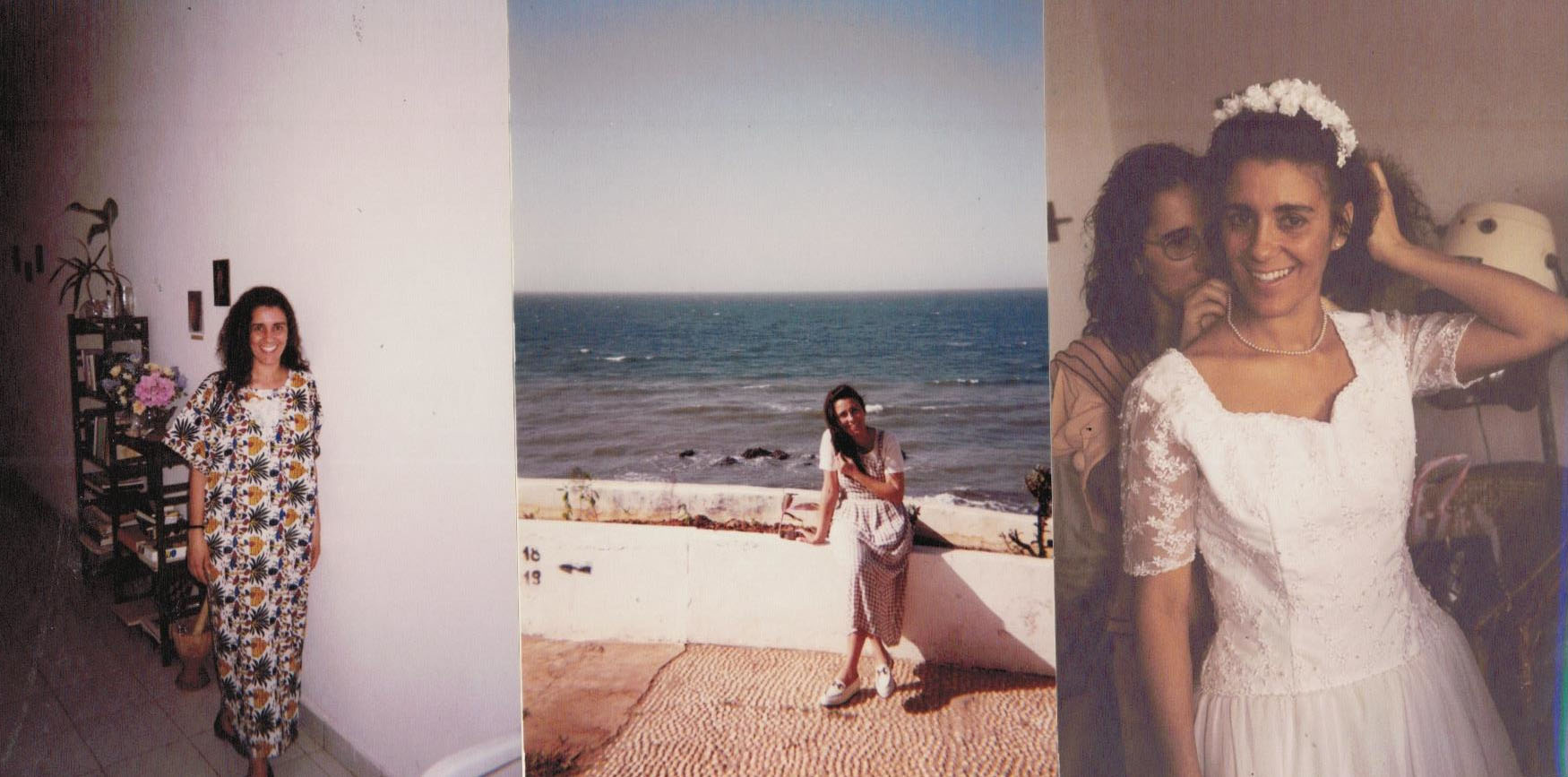
Photo 2, Rosemeire as a young girl
Rosemeire and Adas went to the same church. Rosemeire was baptized at the age of 17. She also felt that she was called by God to go to barren places to help the poor, but she didn’t know how. One day as Rosemeire walked into the church at the age of 25, she saw a young man smiling at her. Her heart started to pound. It was that first tender glance that made her immediately feel the calling from the angel of love, and want to know Adas. However, Rosemeire didn’t expect it would happen that soon. When the party was over that day, Adas approached her with a red-face and invited her to take a walk in the street under the coconut trees. They quickly fell in love with each other. The same aspiration led them to attend seminary together, and they vowed to die for the heavenly kingdom.
In 1989, Adas was sent to work in a leprosy village in Brazil. Before he left, Adas kissed Rosemeire and Rosemeire’s black hair fluttered like a flag in the warm breeze. Looking at his beloved girl’s ruddy face, Adas asked Rosemeire carefully: “I am so glad to go to the leprosy village. You can come visit me any time since we are still in the same country. If one day I go to a foreign country far away as a missionary, will you wait for me?”
“Where are you going?” Rosemeire asked anxiously. “Peru!” Adas said firmly.
“No way! You can go anywhere, but not to Peru! Don’t you know it’s very dangerous?” Rosemeire grabbed Adas by the sleeve as if he were about to leave her.
In the 1980s, the Leftist Bright Path guerrillas rose up in Peru, attacking government offices, assassinating local officials and destroying polling places to seize national power. On April 24, 1985, Electoral College President Domingo Radar (Domingo Garcia Rada) was seriously injured in an assassination attempt. In 1988, Constantine Gregory from State Departments Office for International Development of the United States was assassinated; on Dec 4 of the same year, two French assistants were stabbed. Many foreign missionaries were also kidnapped for ransom.
But the hungry children, the poor without food, and the murderous executioner urged Adas all the time to go to that bloody place. He wanted to contribute his youth to save the poor instead of living for the meaningless life.
“Pray for me, Rosemeire. I have decided to go to the leprosy village for a year, and then possibly to Peru. My dear Rosemeire, if I return safely, we will get married!” Adas gently wiped the crystal tears from Rosemeire’s eyes with his hand.
In the eyes of the general people, Adas had no money, nor a career. He was facing a life of bloodshed and uncertainty while walking alone to leper villages and perhaps to the murderous battlefields of Peru. He didn’t dare and didn’t have the strength to propose to Rosemeire and her family. Who would agree to marry a beautiful daughter to a man who didn’t care for his family or his career?
When they were apart, her heart had missed him so much every day, but the joy of their love was so abundant and so unspeakable. She had always been praying for his safe return.
II. Enter the tiger den to convict guerrillas
In early 1991, the thirty-year-old Adas arrived alone in Lima, the capital of Peru. There was no rain of blood on the busy streets and no clouds on the thirsty South American continent. Adas’s face was smiling like a cinchona flower, and he felt so excited without knowing he was soon to face a life-and-death trial.
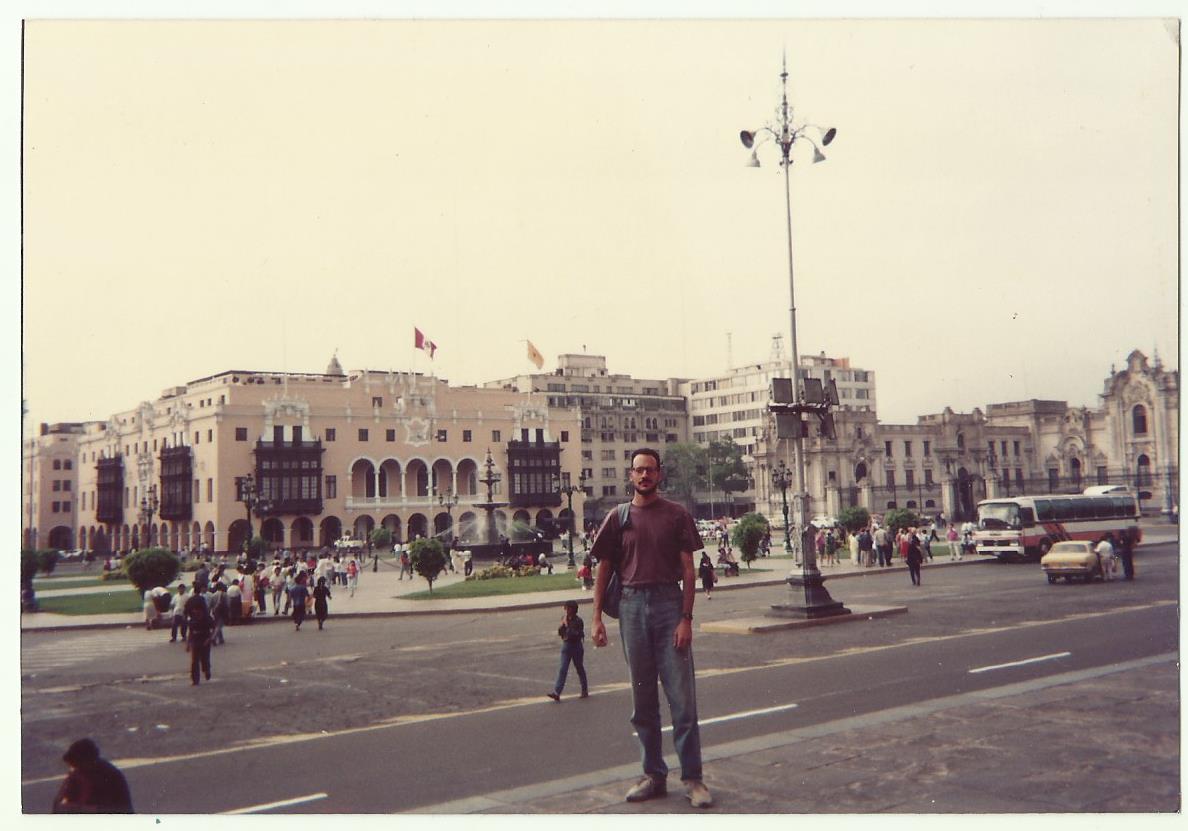
Photo 3. Adas in Lima, 1993
He rented a hut in Lima’s slums, with no water and electricity, no kitchen and bathroom. He had to use a smelly public restroom. The three stones built on the ground was the kitchen. In the evening, the noise from the neighbors including the cry of the children and the flirting of the husband and wife filled the air. He got up early every day to prepare a meal for the entire day, and went around to knock on people’s doors and spread love. In slums, every hut looked exactly the same, and there was no street name or street number. After wandering around all day, he came back at night, often with a tired body, but couldn’t find his home. I can’t imagine a law school student or a hotel manager coming to such a poor place to live a life in this severe condition and in poverty.
On Aug 9, 1991, bad news came: two Polish missionaries, Thomas Zack (Michał Tomaszek ) and Stakoski (Zbigniew Adam Strzałkowski) were kidnapped by the Shining Path, and killed after undergoing unimaginable physical torture because the ransom was not paid. Dodi, an Italian missionary who preached in the same region (Alessandro DordiI) emailed his colleague that he had the bad feeling that he would be the third martyr for the Lord in that year. Sure enough, he was abducted and killed on Aug 25 in the same year. Since 1980, when the bloody war between the government and the Shining Path started, guerrillas had systematically kidnapped wealthy celebrities. The missionaries who had international support could generate broad coverage from the media so they were also the main targets.
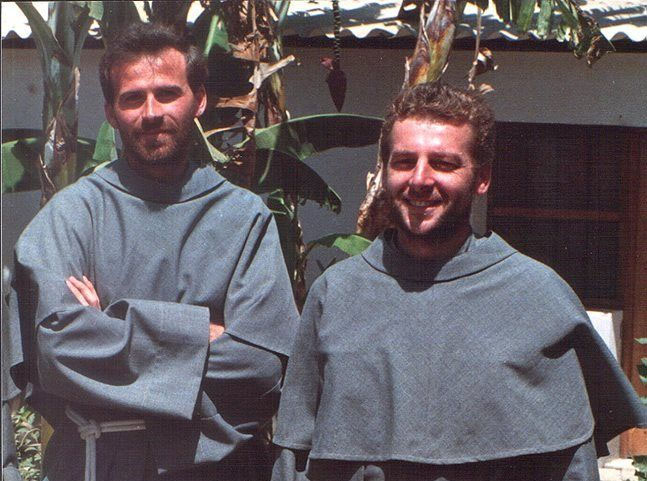
Photo 4. Two Polish missionaries assassinated in Peru, on Aug 9, 1991 . On the right is Thomas Zack (Michal Tomaszek ) and on the left is Stakoski (Zbigniew Adam Strzalkowski )
The bloody events stirred Adas’s heart and the anxiety and worry made him tremble in fear, “Should I return to my home? This place is full of destruction and killing, why don’t I go back?” Rosemeire and his family had been asking him to go home like a cuckoo bird crying out. The hometown strongly attracted him to go back, like the North and South Poles with the huge magnetic field. But how could he face his beloved girl if he couldn’t save and change these murderers with love? More importantly, it would save millions of ordinary citizens from the fear of death, and make them live a normal life in love if he changed these murderers. What a meaningful work that God had sent him to.
He knocked on the doors of his slum neighbors every day, greeting them with a wide smile on his face and awakening their kindness with love. Although he was not afraid of death, the number of people killed by the Shining Path was increasing, and the number of celebrities kidnapped was also increasing. On April 5 ,1992, the Japanese-born Alberto Fujimori, Peru’s president, dissolved the Congress on June 1, and announced that the country was entering a constitutional emergency status. He set up a military court and declared a war with the Shining Path. Then the Shining Path responded with even bloodier violence. At 9:15am on July 7, 1992,a 1,000-kilogram bomb exploded in the Miraflou district of Lima. It killed 25 people and injured 155 people instantly, while blowing up and damaging 183 houses and 463 cars. Similar explosions rocked Lima in the following week. This was the Iron Fist campaign started by the famous Tarata bombing incident.

Photo 5. The bombed-out Tarata street
Adas often asked himself with fear, “Will I be the fourth missionary to lose his life here?” There were many times when he opened the door and retreated, but more times he stepped forward. The threat of death had turned his hair white and wrinkled his forehead. No one wanted to fight with death so young. Instead, everyone wanted to enjoy the touch of his loved one. However, God’s love led him to go on and the passion to save others forced him to drop any fears.
Meanwhile, Rosemeire was going through anxiety and fear, which burned her like a big flame. She wept a lot with tears flowing like the Amazon river from Sao Paulo to Lima. She called Adas many times in fear: “My dear, come home! I don’t want to lose you!” Adas comforted her by raising his right hand to join her in prayer for peace.
But as soon as he put down the phone, Adas took his backpack and visited a small black room in the slum. Once he entered, he felt a rush of evil. A wiry man, with a smile in his eyes and a blue-flashing pistol aimed at Adas, asked in a hoarse voice: “Who are you? What are you doing here?”
Adas had to admit that he was very scared. He answered in a trembling voice, “I am a missionary from Brazil, and I came here to urge you to stop killing!”
“Ha ha ha! ” A burst of laughter came over, “Are you not afraid of dying? How dare you come here?”
Gradually, Adas’s eyes got used to the dark environment inside that house, he saw many AK47s and various other types of rifles, bullets and grenades, hanging on the walls. Realizing that he had accidentally entered the tiger’s den, Adas prayed quietly for God to keep him calm. Any confusion and weakness could bring death. To avoid death, he had to face the situation bravely. After lifting up his heart from sinking, he fearlessly told that guy that he, just like Adas, was a sinner and needed to repent. He could no longer live with the killing and he needed love, instead of hate. Adas paused and looked at the man with sincerity and love in his eyes.
The man continued pointing his pistol at Adas, with a fierce glint in his eye, and said viciously: “If I move my finger, your life will go to hell. In my life, I never love, I only have known killing, and you will be my next ghost.”
“I have God, and you can’t do anything to me without His permission! “ Adas pointed to the sky. The man was a little surprised. He had never seen a man who was not afraid of death. He said, “Well, don’t you leave tonight! I’m the guerrilla leader, and I want to see how brave you really are!”
He grabbed Adas by the collar, put his pistol to his waist, and pushed him toward the back room, while saying coldly: “Don’t try to run away. If you dare to run, I’ll shoot you! “
Adas nodded calmly and said: “Don’t panic, I’m not running away. Captain, I want to ask you a question, have you ever thought about your future?”
“Future?” Captain smiled bitterly again as what Adas said just touched the pain in his heart. At that time, the government was compressing them more and more severely and lots of his members were becoming depressed, since no one could see a bright future.
Adas smiled and told him many things he had never heard before: one must deal with his own sins, one must give up killing, and one must show love to one another. Imperceptibly, the captain’s face softened, and he inserted the pistol back into the holster. He said to Adas: “What you have told me is good. I will let you go but if you really have the guts, you come back tomorrow.”
The next day Adas was a little hesitant: he just escaped from this evil tiger, should he go back to the trap again? However, he felt that he could not just flee away and gave up the chance of changing a guerrilla leader for the sake of reducing his own risk. If he could change a guerrilla leader, it may be possible to change the entire guerrilla, and save more civilians from being thrown into the bloody sea. He bought some food with his very little savings, thinking he might lose his life if he failed, went back and knocked on the captain’s door. Thank God, the captain did not refuse his gift, and there was no grim expression on his face. Since that day, Adas visited the captain frequently, talking with him many times through the night. Finally one day, the captain said to him: “The underground guerrillas will meet at 11 pm tomorrow. Would you like to come and meet my team?”
Adas was very happy. He felt that opportunity was just like sunshine between his fingers that would disappear soon if he didn’t take action. He did not want to let this rare opportunity pass. Next evening, around 11 o’clock, under the bright moon and stars, Adas stumbled through stones and rocks all over the ground. Suddenly, the guerrilla leader made a loud whistle and about twenty some men appeared from nowhere, each holding an assault rifle in their hands and shiny daggers around their waists.
“Take him to the front under the big tree! ” The captain gave the order very concisely and forcefully. Adas’s heart sank. He had been so carefully looking after the death, and now it smiled evilly at him like a withered poppy. “That’s it,” he thought: “I really will become the fourth martyred missionary. “
He looked up with no fear in his eyes and said to the captain, “May I say something? ” While the captain was still hesitating, Adas turned to the team and began to speak: “Brothers, I am a sinner like you and I want to live well. But the sin of my heart compels me to go astray.”
God really provided him the wisdom and eloquence. He talked about the sinfulness of man beginning with Adam and Eve, and about the endless love from heaven. Without love, every soul would go astray in the world. He talked about how people all need love from heaven. Everyone needs to confess and repent. The more vigorously Adas talked, the more he found that these murderous guerrillas began to lower their heads slowly, and also point down the weapons in their hands.
The sky gradually turned to dawn when a purple cloud flushed the earth. Adas escaped death once again. From then on, he made friends with the guerrillas. He often invited the captain to have dinner and talk to him with love to warm his heart, which was filled with mercilessness. The ice was slowly melted by the love, and the captain asked him to come every Sunday to give a sermon to the guerrillas, who all eagerly listened to the gospel, and their hearts were gradually touched and changed like the fields in spring slowly turned to green. They heard the gospel, with messages like love your enemy, and if someone slaps your left cheek, you should turn your right cheek for him to slap. The guerrillas slowly grew in love, put down their weapons, and moved to a new way of earning a living by their own labor. The smiles on their faces were as bright as the sunshine, which had not been seen from them for years. With no worries, no fears, the guerrilla members happily reunited with their families.
The life fruit of Pastor Adas bore the brilliant flowers of the soul. Adas worked there for three years, founded a church, saved many bloodthirsty souls and also saved many civilians from being killed. Adas also trained several church leaders from the guerrillas. The church has grown to a quite large one today, with over two hundred members.
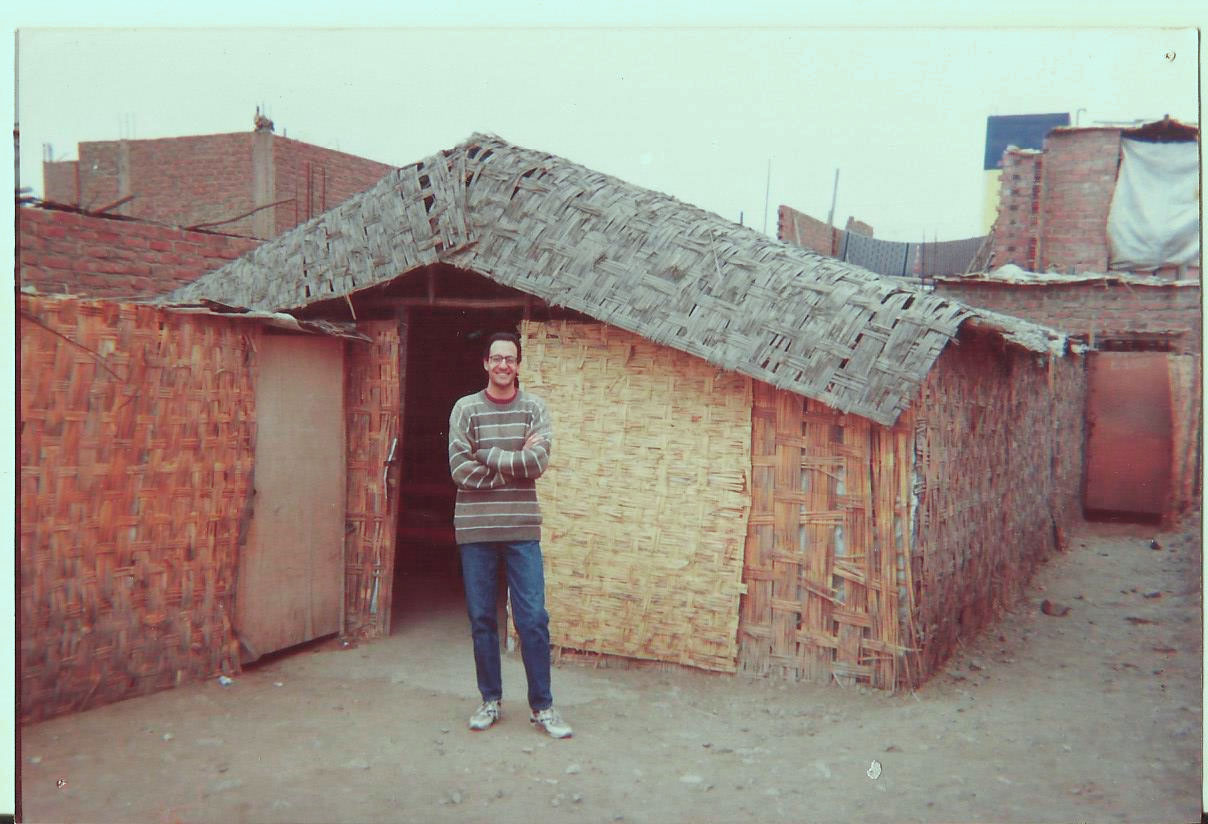
Photo 6. The place where Pastor Adas met with the guerrillas and set up a church
III. Save the poor island
In 1994, Adas returned to Brazil, exhausted but joyfully as he had saved many lives. After numerous times holding Rosemeire in his dreams and saying goodbye to her as he faced death, he was now safe and going to see his sweetheart again. Rosemeire clung to Adas and refused to let him go for a long time. She whispered in Adas’s ear, “You’re never leaving me again!”
“No, I have to go. I am being sent back to the leprosy village.” Adas told Rosemeire apologetically. Rosemeire’s heart was hurt like a cut by a knife, and she did not want her loved one to leave again right after coming home. Having been apart so long, it was so short to stay together just like the sunset, soon disappearing behind the mountain.
Warriors always climb higher and higher. In a leprosy village in Brazil, Adas met a woman missionary from Costa Rica, 50-year-old Isabel, who became an important person in his life. As soon as she met Pastor Adas, she told Adas that God was calling him to go with her to Guinea-Bissau in West Africa. Adas really didn’t want to leave his beloved. But his heart thumped for Guinea-Bissau, where he had been called.
In 1995, Adas and Isabel arrived in Guinea Bissau, and their first goal was to land on a beautiful island – Pecixe island. This island had 32 villages, with a population of about 3,200 people. The villagers who continued the same inheritance for thousands of years, they had never heard or dreamed of having electric lights, cars and so on. The hungry crowd, like black ants, devoured everything they could eat. Adas’s team sent a batch of grain and beef, and the hungry villagers immediately grilled the beef on a fire, dusted it with salt and chewed it up. For so many years, the villagers knew only how to barbecue food. A few days later, Adas’s team decided to cook several pots of beef broth and distribute them for free. The mouth-watering aroma of beef with ginger and spices attracted many villagers, who were shocked to find that beef could be put into an iron pot and made such a delicious soup. The villagers, even at the temperature over 100 degrees, enjoyed the beef soup so much for the first time in their life. Their faces smiled like a blooming Vernonia while their sweat dripping like rain,
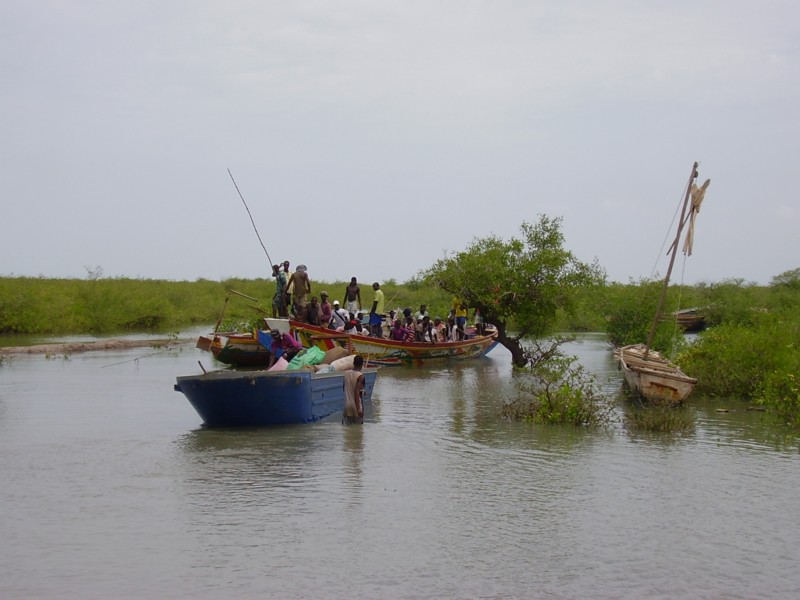
Photo 7. Leaving for the beautiful island of Pecixe
Malaria, parasites and tropical diseases were very popular on the islands. Death roamed like a ghost. Whenever a young man fell to the ground, the witch doctor announced: “This is a punishment from the gods. No one can touch the dead.” Rotting corpses with foul odors made the disease hover over the islands like hawks. Life was so precious that Adas’s team would rather sacrifice their own lives to save those of the villagers. While tolerating the bad smell, they broadcasted their hygiene knowledge while mobilizing villagers to bury the bodies with their mouths and noses covered. Desperate love and heartfelt smiles moved the villagers to work together to reduce the spread of many infectious diseases.
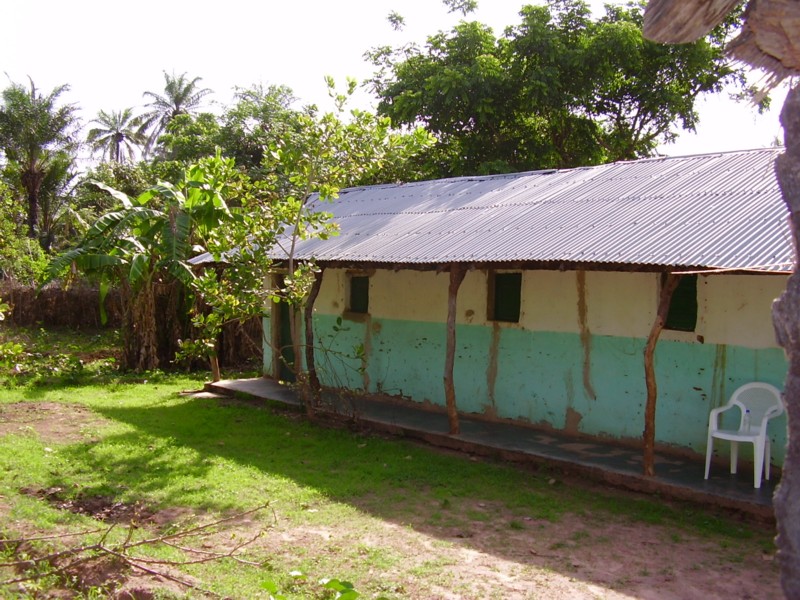
Figure 8. The small house Adas’s team built on the island. There were no windowscreens but mosquitoes and flies were everywhere. Malaria, dengue fever and parasitic diseases were rampant everywhere. They lived in this small house to serve the Lord.
Aspirin was the only medicine that Adas’s team had on the island. When facing different kinds of diseases, they did not have adequate medical knowledge or the right medicines. They could only lay their hands on the patients and pray for them. Many patients were healed. They gave grain to the villagers and healed their physical and mental illnesses. Their sincere love finally won the villagers. They dedicated their lives so much that the villagers saw their selfless love from heaven with their own eyes. Many villagers followed Adas’s team, and abandoned the witch doctors, ghosts and spirits.
One night, the hot and wet weather was like a big bell covering the tent where they spent the night, and mosquitoes roared like thick clouds, biting them everywhere. Just as they were becoming sleepy, suddenly the door of the tent was patted. A tall man dressed in black charcoal was singing a strange witch song, playing drums and throwing some wood-engraved idols on the tent. He waved a shiny knife in his right hand and shouted, “Who are you? How dare you come to my place? I’m going to kill you!”
It turned out that this was a village witch, who made a living by bullying, cheating, creating idolatry, terrorizing the villagers, and killing babies to eat and drink. Every time he did his magic, a red light shone on him, and he did whatever he wanted to the villagers through the evil spirits. The villagers fell under his power, trembling and not daring to defy him. Now that Adas’s team had come and taken away his job, he wanted revenge. Adas prayed and opened the tent door. The witch who didn’t expect this, ran away like a rabbit and disappeared right after seeing Adas.
In this way, the breeze of modern civilization blew the island green. The island, which was sleepy for thousands of years, began to wake up, as schools and churches, telephones and generators and so on started to bring the villagers into a new life. Soon the witch abandoned idolatry, accepted God and became Adas’s team’s helper. When other witch doctors saw his transformation, they tried to kill him by putting poison into his food. However, he survived through the many prayers of God’s people. After such a trial, his mind was more determined to bring more villagers into the church. His life stepped into a new chapter.

Photo 9. An island school set up by Adas’s team

Photo 10. The first church established on the island by Adas’s pastoral team
Ⅳ. Saving orphans in the midst of war
In September 1995, shortly after Adas arrived in Guinea-Bissau, love shined on Rosemeire’s heart and God’s calling urged her so she couldn’t wait longer. She flew to Guinea Bissau, into Adas’s arms. After the wedding, the couple wrote a love poem that could move the mountains and rivers, and change the world. I will describe the details in the next article.
One day, Ms. Isabel found a 7-month old girl Mary Emma (Mariama) next to a yellow trash heap on the street. The baby was too weak to look around. Looking at the little Emma, the missionaries were in a dilemma: “What should we do?” Although they have never raised a child, their love surged like a spring tide with rain, and the instinct of love made it impossible for them to leave her alone. Rosemeire picked up the child and took her back to their room. Mary Emma was covered in yellow water and smelled very bad. They didn’t know what it was then. But now we think it might be due to the scabies. The most common symptoms are severe itching and red pimples. They didn’t know the disease, nor did they know it was contagious, but no one could put her down, and they took turns holding her. Soon, however, each of them was infected with the same disease, itching and running yellow water. This dirty, sick child was the first child in the orphanage they had set up unexpectedly.
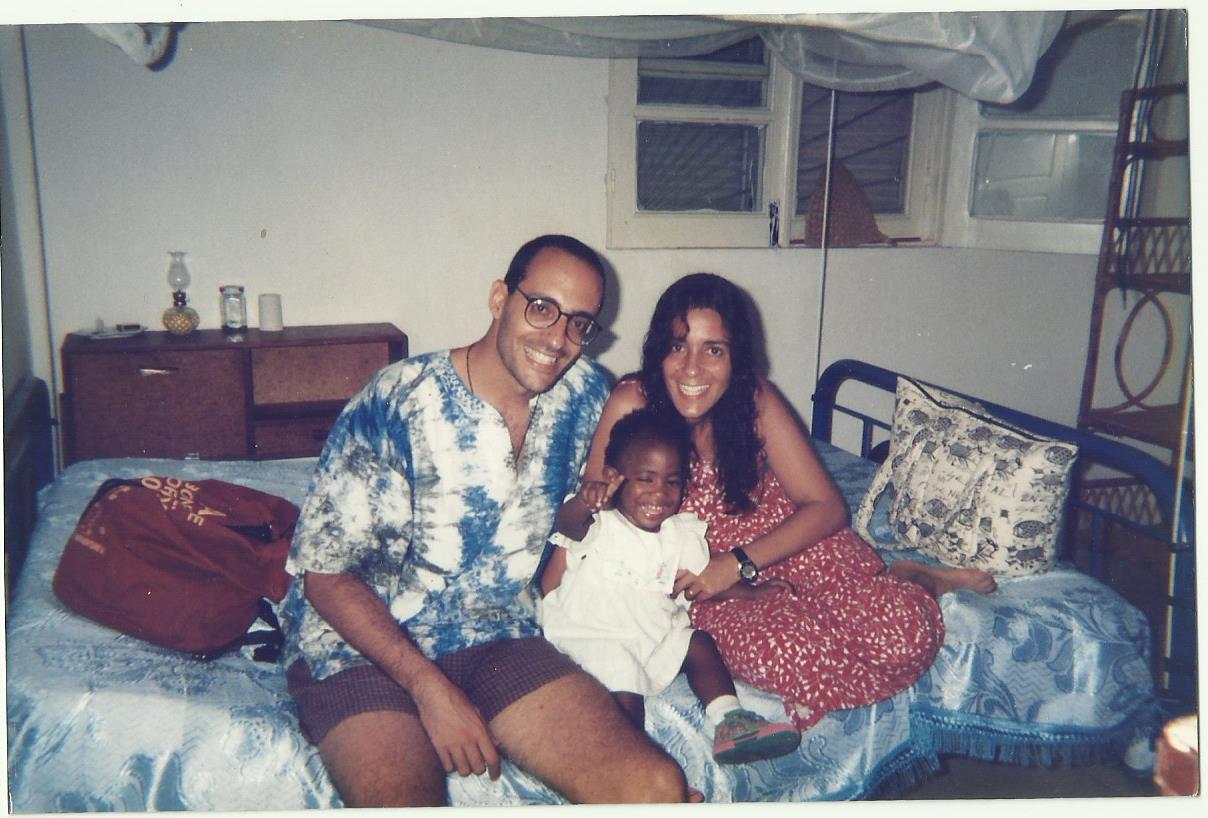
Photo 11, Mr. and Mrs. Adas and Mary Emma, the first child of the orphanage.
Mary Emma brought lots of joy to Adas’s team and gave them another outlet for their love. Before long, a 5-year-old boy, who was wandering around the island and deprived of food and clothing and severely dehydrated, was sent to Isabel’s door. It was known that his father was a methamphetamine maker, and then disappeared. No one knows who his mother was. He was adopted by Isabel and given an official name, John. Johnny was then followed by a total of 9 children. These 6 missionaries (4 male and 2 female), totally unprepared, set up an orphanage after being touched by the children’s cry. Without money, they had to save their allowance. Even without space, they squeezed into their houses. The rooms were littered with baby bottles and nappies, and everywhere crying was heard. Men went around to raise money, while women cooked and washed clothes. As long as they raised enough money to build a pillar, they’d immediately cement a pillar. When they had enough money for a bed, they bought one right away. They did not have any help from others, but they did play a love symphony with the caring of abandoned babies. They felt that poverty was not terrible and it was OK that they didn’t have enough funds. Just spreading God’s love brought hope to the people of Guinea-Bissau and their hearts were satisfied.
Two years later, their first son Sam was born. They did not have the ability or the money to hire a private babysitter for their child. Everyone loves their own child, and no one wants their child to grow up with dirty, diseased, uneducated African orphans. However, Sam grew up and played together with the 9 orphans. Sam’s skin was dripping yellow and so itching that he scratched it into blood. Due to the itchiness and pain, he cried every night, which also made Adas and Rosemeire cry. Their hearts hurt like a beautiful porcelain plate fell to the ground and broke. They dedicated themselves to God without frowning, but they didn’t expect their children to endure this suffering too. It seemed that it would be hard for a weak child to survive under the weather and living conditions in Guinea-Bissau. Adas and Rosemeire discussed so many times whether to send Sam back to Brazil to be raised by his grandparents but after many prayers, they decided “not to give up their responsibility to raise their children. Sam had to grow up with his parents”.
While they were so passionate in helping orphans and the poor as well as bringing food and civilization to the villagers, a bloody civil war took place without warning. In early January of 1998, Guinea-Bissau troops opened fire on the separatists within their borders, killing 10, and arresting 40 separatist fighters. On Jan 30, 1998, President Vieira impeached the chief commander of Guinea Bissau’s army, Brigadier General Manni. But with the support of neighboring countries, Brigadier General Manni was desperate to stage a coup to overthrow President Vieira. The streets were full of armored personnel carriers and guns and bullets were whizzing through the air. Hundreds of soldiers and civilians died in the fighting, and thousands of civilians fled Guinea-Bissau.
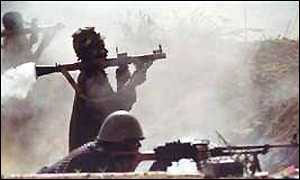
Photo 12. Civil war in Guinea-Bissau, BBC Live coverage
The cannon boomed. There were shots and gunshots around the orphanage. Rosemeire wept and said to Adas: “It’s too dangerous. Can you take Sam out first? I can stay here and look after the orphans.” Adas, with his eyebrows furrowed and his face unwavering like a black tower, said firmly: “We have all sworn that we will never leave orphans to run for our lives.”
Adas’ team was stuck in the flames of war and couldn’t move. They didn’t have a vehicle to transfer the children and didn’t know where to move them even if they had one. Suddenly a bomb exploded in the front yard, collapsing the wall of the orphanage. The deafening explosion scared the children to cry. They had no food or vehicles. All they had was only a little bit of water. Adas ventured out of the gate, looking around with no idea where to find food and help.
He saw a cameraman reporting live on the streets. He saw RTP, which stood for Radio and Television of Portuguese, the Portuguese national radio and television station. Guinea-Bissau was a former colony of Portugal. Adas suddenly had an idea. He walked to the camera and shouted in Portuguese, “There is a group of orphans who need help.” Photographers and reporters did not expect people to interfere with the live broadcast in the hail of bullets. They immediately followed Adas to the orphanage and all they saw were the dying orphans, collapsing walls, and crying children caught in the flames of war. The vivid scenes shocked Portugal and the entire Europe like lightning.
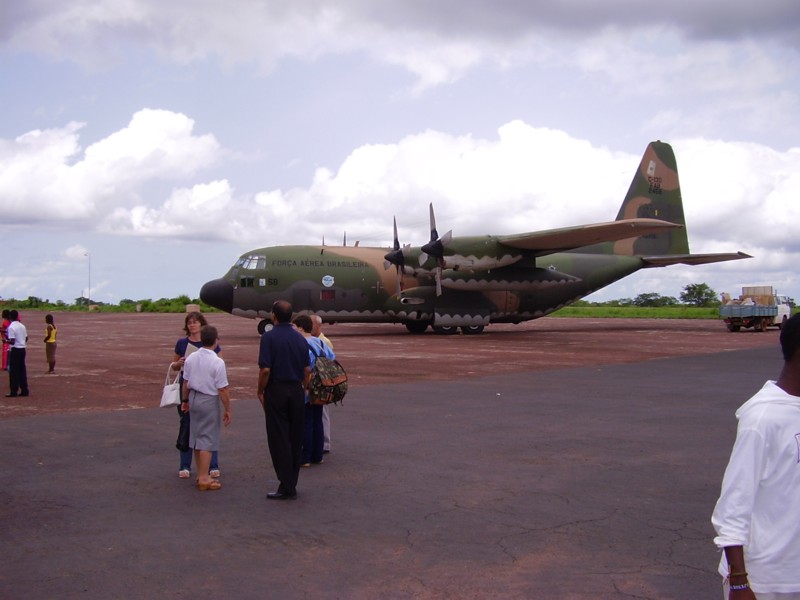
Photo 13. Adas and Sam flew back to Brazil on this plane
Love has no border. Portuguese government immediately sent an aircraft to transfer 9 orphans and 4 missionaries to Portuguese. At a welcoming ceremony held at Lisbon airport, Isabel expressed her wholehearted thanks to Portuguese government on behalf of the children. Adas and Rosemeire did not go to Europe since Rosemeire was pregnant and they had to stay in Guinea-Bissau dealing with the aftermath. Although they didn’t have enough food and water, they survived with prayers and faith. Eventually they had to leave war-torn Bissau and return to Brazil.
On May 10, 1999, President Vieira declared an unconditional surrender, halting the civil war that had lasted more than a year. Once Adas and Rosemeire heard the good news, they seemed to hear the calling from God, “There will be more orphans there, and the poor there will need you more.” No matter what their families said, they took Sam and Larissa, their Brazilian-born daughter, back to Guinea-Bissau, where they wanted to begin a new journey.
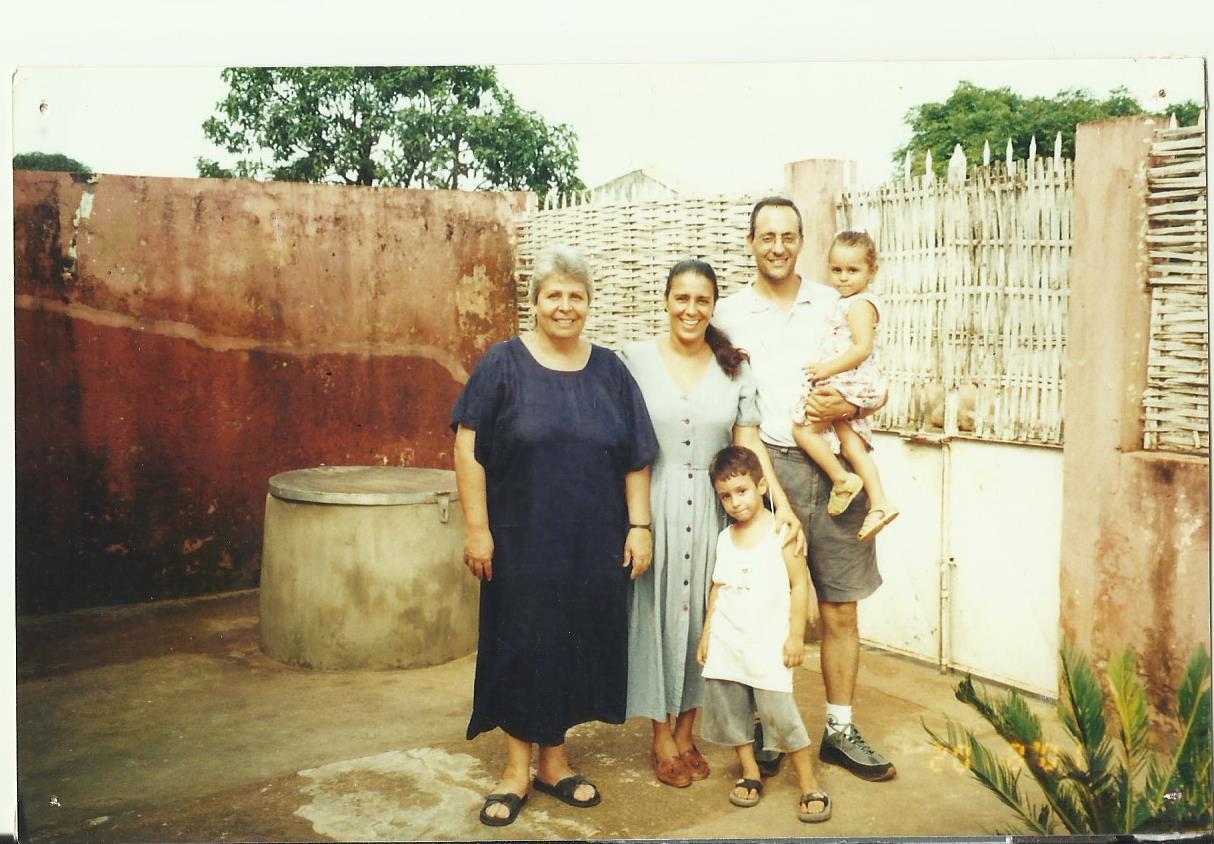
Photo 14. Adas’s family and Mama Isabel
After the baptism of fire, the children were safe and healthy and could return. The Portuguese government held a grand send-off for the 9 orphans, and the entire Europe was moved by the emotional story. With international media exposure, the orphans returned to Bissau, where the smoke had not yet cleared. The Government of Guinea-Bissau donated a piece of land sized at 15 thousands square meters. Economic aids came in like a wave from all over Europe. With all these helps, they founded a twelve-grade school for orphans, named the Emmanuel Orphanage (CASA Emanuel). Each class has about 20 students. There was also a kindergarten for the disabled and a hospital of good standard.
The number of orphans they adopt is increasing rapidly so they have opened up adoption to caring people all over the world. They keep a dynamic balance with about 130 orphans every year. Among the first group of orphans, John (Jon Johanning) was adopted by Isabel and came to the United States to study abroad. He is now a professional soccer coach and lives in Atlanta, USA and is also a happy father and husband. Adas and her husband also adopted twin orphans, Rebecca and Rubin, and the family of 6 continues their challenging journey.
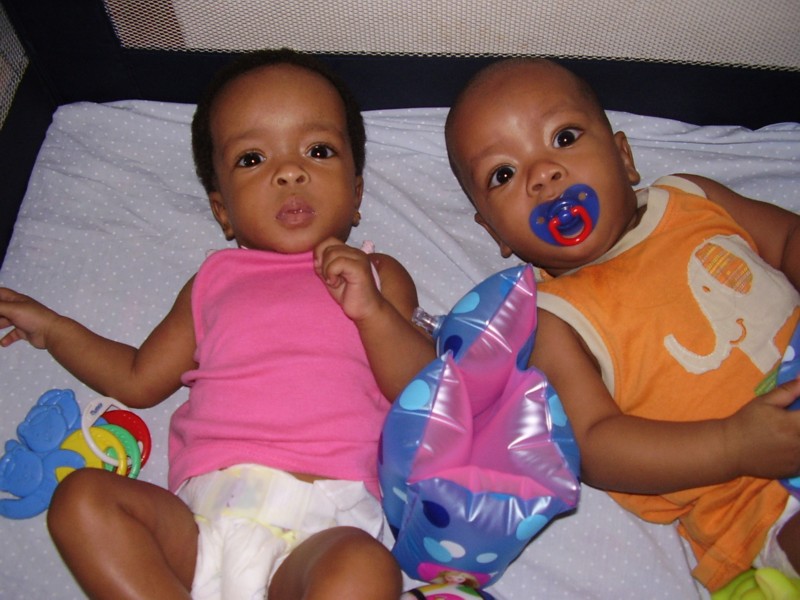
Photo 15. Rubin and Rebecca, the twins adopted by Adas and Rosemeire.
They built an orphanage with their lives and changed the lives of many orphans:
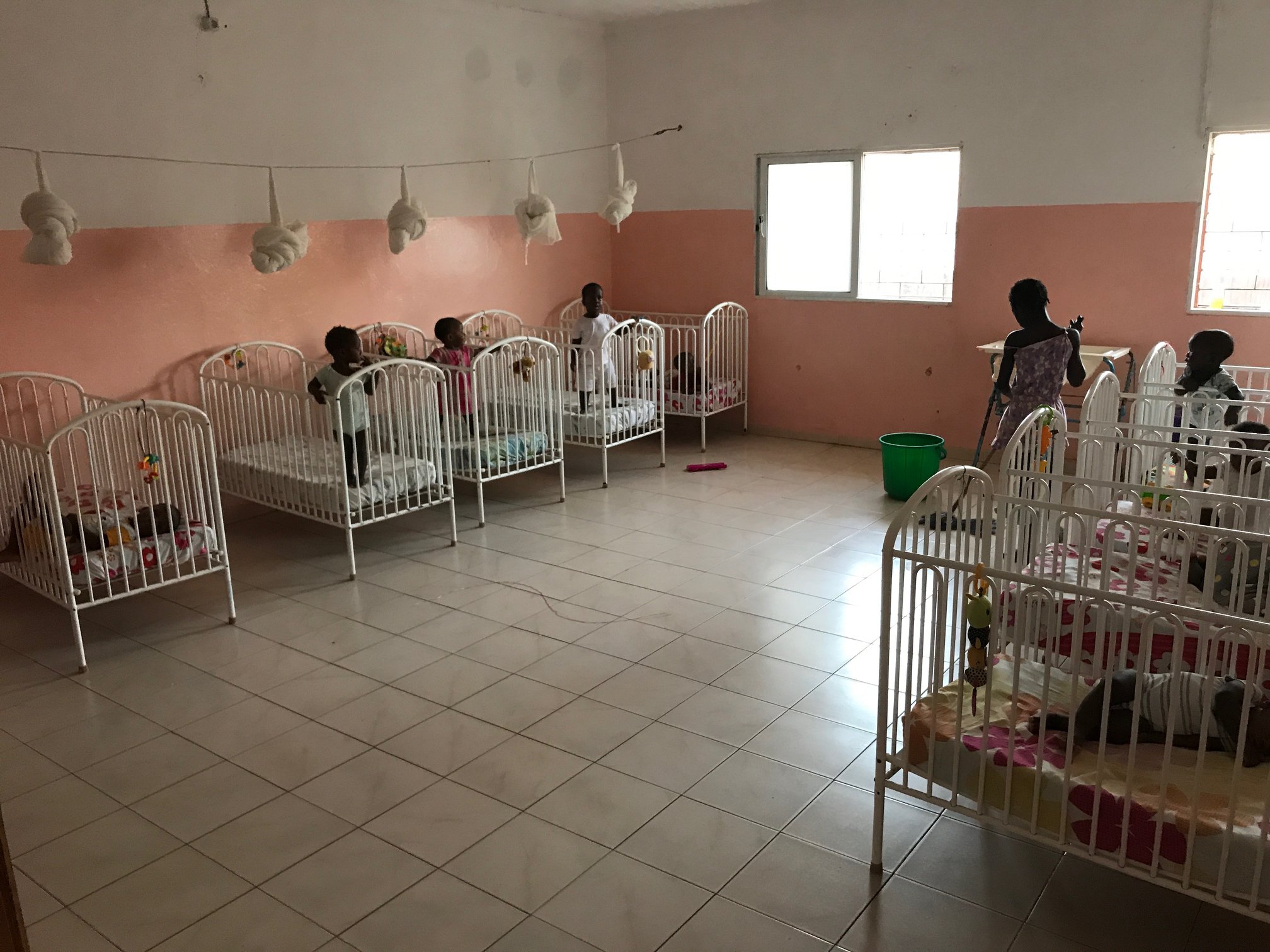
Photo 16. A new nursery
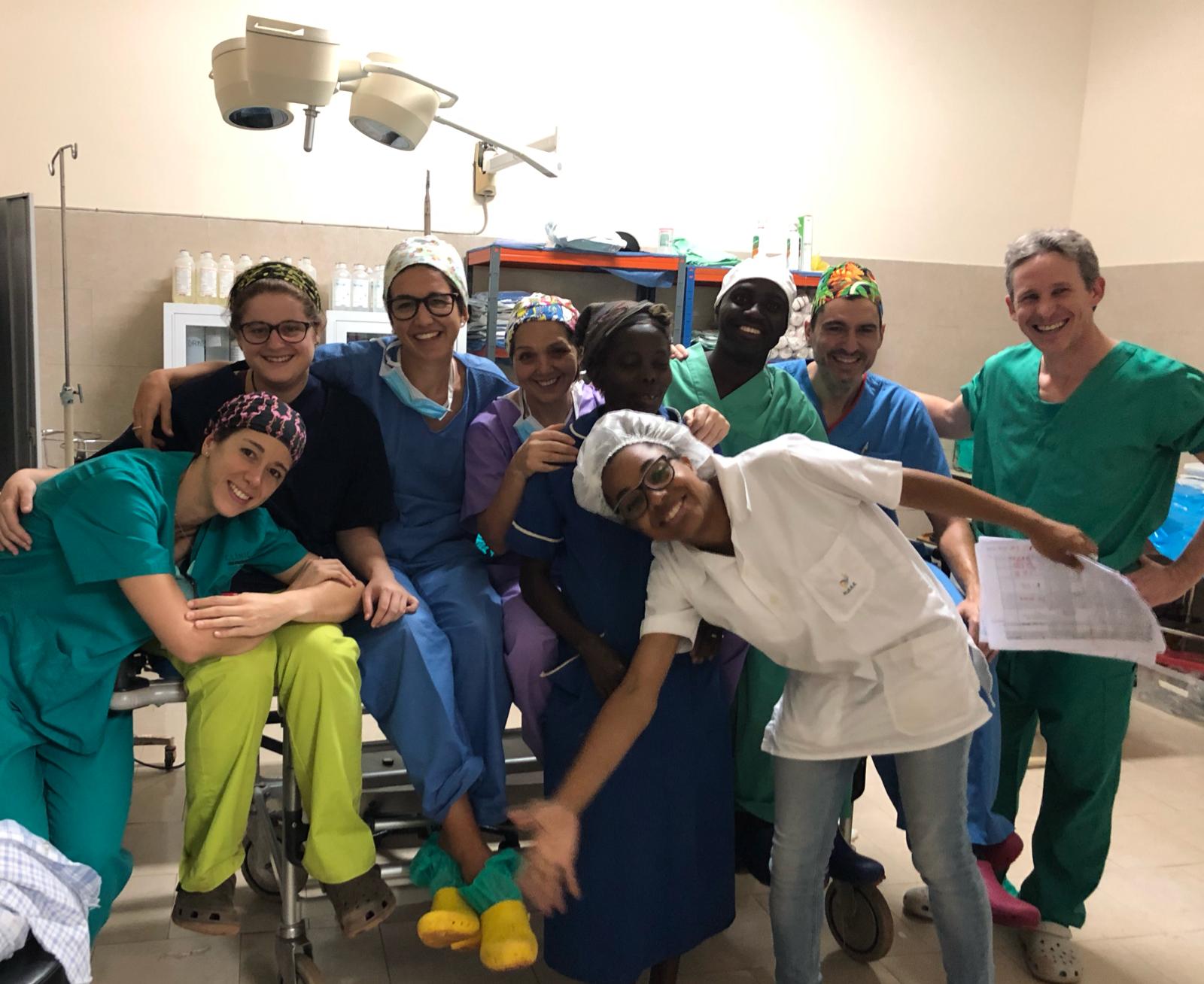
Photo 17. The foreign medical team in the operating room of the orphanage’s affiliated hospital

Photo 18. Some of the orphans in the new campus.
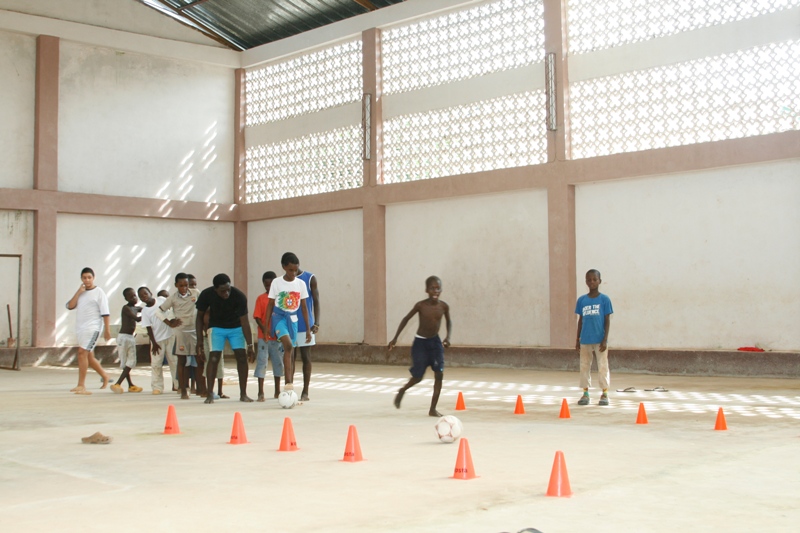
Photo 19. Orphans practice soccer in the orphanage gymnasium
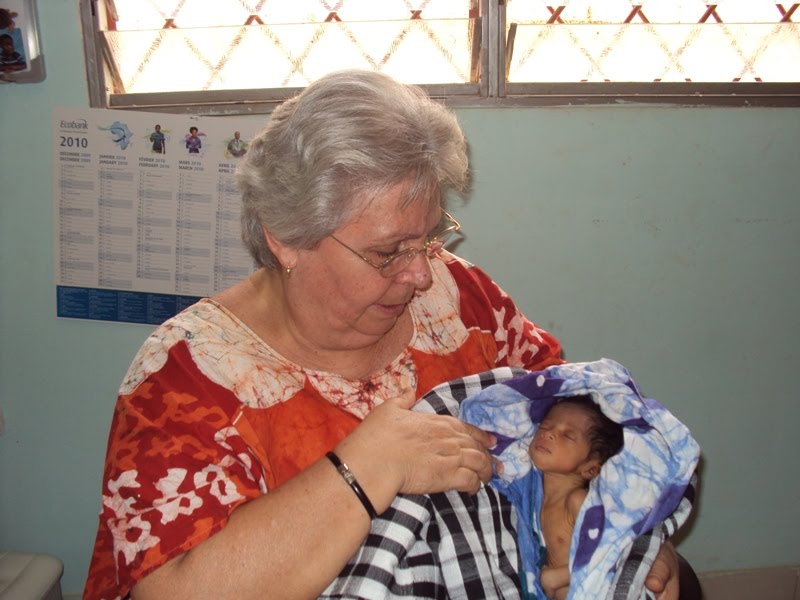
Photo 20, Mama Isabel holding a newborn in her arms in 2018. All the children and volunteer workers call her mother. She is single, but has nearly a thousand children.
V. A tearful salute
Writing this now, I recall the famous poem of the American poet Whitmans: “Face the sun, and shadows will fall behind you. ”
The life of Pastor Adas and his wife did not bring them any wealth, but the shadow fell behind them. God’s love is the sun that leaves all ugliness and selfishness behind. There is an incomparable peace and serenity in their spirits and souls. The meaning of life is not the accumulation of wealth, but the pursuit of the spirit and the passing of love. The beauty of life lies in the exploration and review of the meaning of life. A person without faith does not have character and spiritual life. His soul will always wander without a root of life.
If Pastor Adas did not pursue love from heaven, he would never have met a guerrilla leader by chance; if he had not met Isabel, he would not have done earth-shattering events in an orphanage. The torch of life will light up the darkness, but often burns the hands of those who hold it high. Adas and Rosemeire dedicated their lives to the African children who were abused, but their family traveled a very difficult journey.
In 2011, they left the orphanage and came to Senegal to join the team of Pastor Otavio Marques. I had the honor of working with them and building something from nothing. Our Technical School has built a 110,000-square-foot classroom building and 6000-square-foot student dormitory. We have opened classes in Hydraulics, Electricians, Architecture, Agriculture, Sewing, Baking and Computer. Our base and the leprosy village hospitals can help over 100 patients every day. Every year, we bring them the free medicines worth about $500K and give about $20,000 of rice, vegetable oil and other necessities to the leprosy villages and other villagers in the depths of the jungle. Many of the heroes of our team have dedicated their lives to the African people.

Figure 21. Dr. Jun Xu and Mr. and Mrs. Adas at base in Senegal , March 2019
– Xu Jun April 14, 2019, Finished in New York
